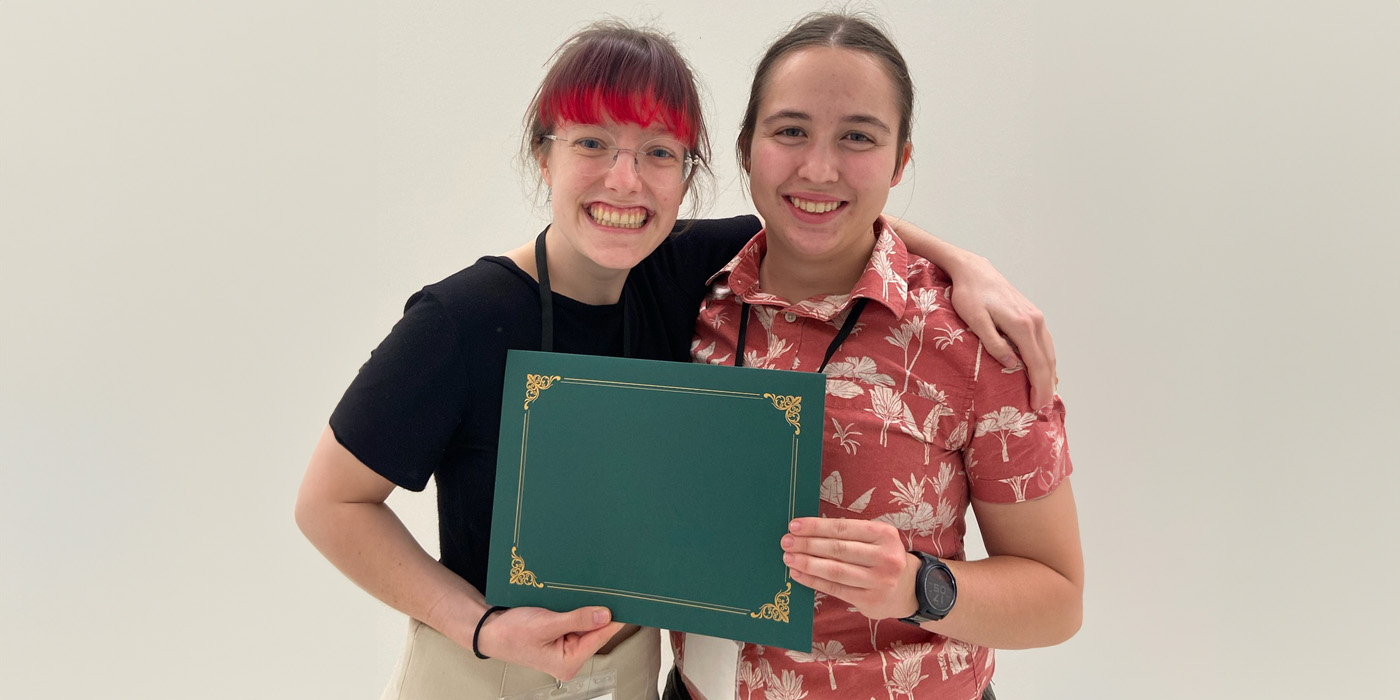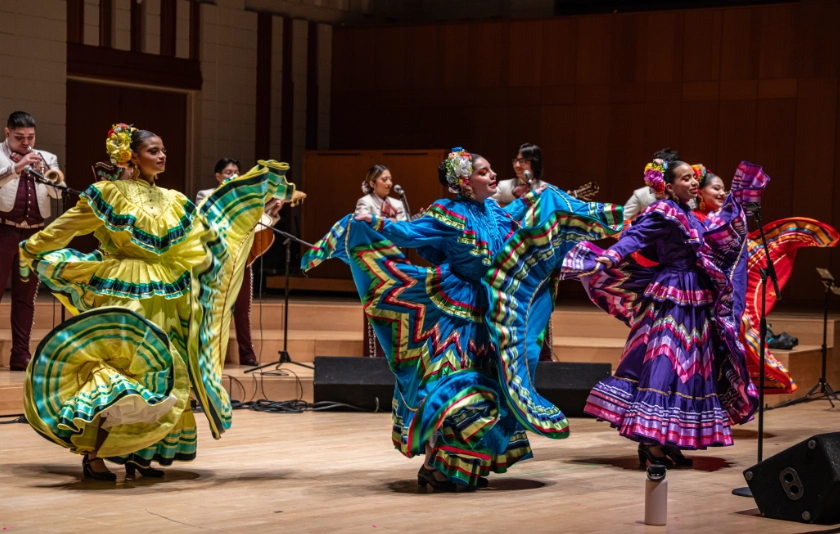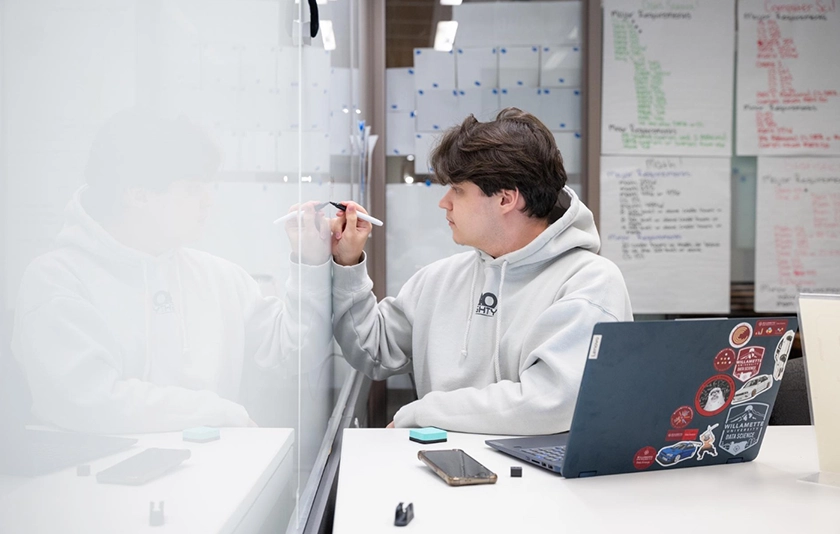In early November, Chemistry students Marni Aosved BS’24 and Melissa Duncan BS’24 were awarded “Best Undergraduate Poster Presentation” at the Oregon Bioengineering Symposium hosted by the University of Oregon. The pair were recognized for their project “Understanding the Effects of Modifications in Quadruplex Molecular Beacons,” which is part of a larger undertaking facilitated by Assistant Professor of Chemistry Cooper Battle designing DNA biosensors for the early detection of breast cancer.
Then, the next weekend, the super-duo presented at the Murdock College Research Conference, where Duncan received a poster prize in the Biochemistry section for her presentation, “Creating an Adaptable G4 Quadruplex Sensor.”
“Research is a fundamental part of the experience for Willamette Chemistry majors,” Battle says. “Marni and Melissa exemplify not just the importance of putting skills learned in the classroom into practice solving real-world problems but also in communicating that work to the larger scientific community outside of Willamette.”
Though challenged by the atmosphere made up of PhD, Master’s, and high-level undergraduate students, the students felt prepared at both conferences with their well-researched ideas and practiced presentation skills.
“I wasn’t a great public speaker before, but I’ve presented my research regularly since sophomore year,” says Duncan, who, along with participating in the Science Collaborative Research Program (SCRP) with Battle for three consecutive summers, is this year’s Presidential Scholarship recipient — a scholarship award that provides research funding for students.
Their research, which aims to make cancer detection faster and cheaper, became more significant when the students combined their interdisciplinary approaches. Aosved is a Chemistry and Data Science double major, and Duncan has minors in Math and Biology along with her Chemistry major. Drawing from multiple science and math fields, Aosved and Duncan were able to tackle these complex research objectives in creative ways.
“The collaboration across campus really helped my approach,” says Aosved. “Data science techniques helped me analyze a lot of repetitive data. The Chemistry department depends on Biology and Biology on Chemistry, with a Physics overlap. Willamette students take language and Power, Difference, and Equity classes, which introduced me to new ways of learning.”
With several projects on the horizon, presenting their poster at the National American Chemical Society conference in New Orleans, both students will take their solid research backgrounds into their post-Willamette pursuits. Duncan is currently working on applications to pursue a PhD in Chemistry, and. Aosved will return to Japan — she spent a semester abroad at Tokyo International University — to teach English and rebuild the connections she made in Data Science, a booming industry in Japan, before pursuing graduate studies.



